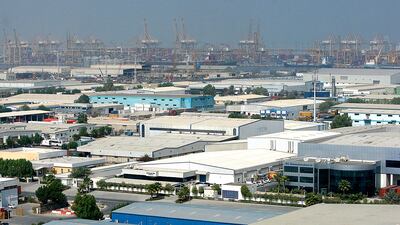Localising the manufacture of high-technology products presents a $125 billion economic opportunity for countries in the region, a new study from Strategy& Middle East found.
Three major product areas — advanced materials, advanced components and advanced products — are expected to drive investments and economic growth and diversification, said Strategy&, which is part of global consultancy PwC.
Three products, in particular — semiconductors, sensors and robots for industrial or general-purpose use, could provide an estimated $25bn in revenue by 2025, it added.
“The Covid-19 pandemic threw into sharp relief the susceptibility to supply chain disruptions and questioned the region's resilience. It was difficult or impossible for companies to secure all the essential components on which they now heavily depend,” said Alessandro Borgogna, partner with Strategy& Middle East.
“Localising tech and digital is, therefore, vital as it secures the supply of parts and products that are integral to economic and business activity.”
The Middle East economies are stepping up their efforts to become major players in the global technology scene, with several initiatives rolled out in the direction.
The UAE has its Industry 4.0 plan, which aims to boost productivity and the development of innovative products, increase manufacturing by 30 per cent and add Dh25bn ($6.8bn) to the nation's economy by 2031.
Saudi Arabia, the Arab world's biggest economy, is currently developing its Neom project, the $500bn megacity that will be powered by smart technologies.
Both the countries are also heavily investing in technology companies and services to boost and complement their agendas.
Middle East governments that pursue economic diversification and localisation need to realise that a technology manufacturing footprint is a linchpin, Strategy& said.
This is “given the visibility of massive projects already under way, the growing wave of industrialisation and digitisation regionwide, and the potential to secure captive in-country demand”, it said.
The market for industrial and service robots, and Internet of Things products in the region could reach $4bn and $1.5bn, respectively, by 2025, according to the study.
“As a result, competition among countries — to stake claims on tech segments, gain first-mover advantage and attract as tenants global tech companies looking to establish a regional foothold — will be fierce,” it said.


